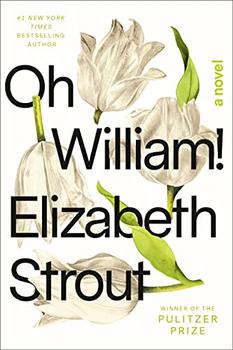Summary | Reading Guide | Discuss | Reviews | More Information | More Books

Amgash Series #3
Pulitzer Prize winner Elizabeth Strout explores the mysteries of marriage and the secrets we keep, as a former couple reckons with where they've come from - and what they've left behind.
I would like to say a few things about my first husband, William.
Lucy Barton is a writer, but her ex-husband, William, remains a hard man to read. William, she confesses, has always been a mystery to me. Another mystery is why the two have remained connected after all these years. They just are.
So Lucy is both surprised and not surprised when William asks her to join him on a trip to investigate a recently uncovered family secret—one of those secrets that rearrange everything we think we know about the people closest to us. What happens next is nothing less than another example of what Hilary Mantel has called Elizabeth Strout's "perfect attunement to the human condition." There are fears and insecurities, simple joys and acts of tenderness, and revelations about affairs and other spouses, parents and their children. On every page of this exquisite novel we learn more about the quiet forces that hold us together—even after we've grown apart.
At the heart of this story is the indomitable voice of Lucy Barton, who offers a profound, lasting reflection on the very nature of existence. "This is the way of life," Lucy says: "the many things we do not know until it is too late."
First published in October 2021; paperback reprint April 2022.
"Loneliness and betrayal, themes to which the Pulitzer Prize–winning Strout has returned throughout her career, are ever present in this illuminating character-driven saga... It's not for nothing that Strout has been compared to Hemingway. In some ways, she betters him." - Publishers Weekly (starred review)
"Strout's habitual themes of loneliness and the impossibility of ever truly knowing another person are ubiquitous in this deeply sad tale, which takes its title from Lucy's head-shaking acknowledgment that her ex will never change, cannot change the remoteness at the core of his personality. Another skillful, pensive exploration of Strout's fundamental credo: 'We are all mysteries.'" - Kirkus Reviews
"Elizabeth Strout is one of my very favorite writers, so the fact that Oh William! may well be my favorite of her books is a mathematical equation for joy. The depth, complexity, and love contained in these pages is a miraculous achievement." - Ann Patchett, author of The Dutch House
This information about Oh William! was first featured
in "The BookBrowse Review" - BookBrowse's membership magazine, and in our weekly "Publishing This Week" newsletter. Publication information is for the USA, and (unless stated otherwise) represents the first print edition. The reviews are necessarily limited to those that were available to us ahead of publication. If you are the publisher or author and feel that they do not properly reflect the range of media opinion now available, send us a message with the mainstream reviews that you would like to see added.
Any "Author Information" displayed below reflects the author's biography at the time this particular book was published.
Elizabeth Strout was born in Portland, Maine, and grew up in small towns in Maine and New Hampshire. From a young age she was drawn to writing things down, keeping notebooks that recorded the quotidian details of her days. She was also drawn to books, and spent hours of her youth in the local library lingering among the stacks of fiction. During the summer months of her childhood she played outdoors, either with her brother, or, more often, alone, and this is where she developed her deep and abiding love of the physical world: the seaweed covered rocks along the coast of Maine, and the woods of New Hampshire with its hidden wildflowers.
During her adolescent years, Strout continued writing avidly, having conceived of herself as a writer from early on. She read biographies of writers, ...
... Full Biography
Author Interview
Link to Elizabeth Strout's Website
Your guide toexceptional books
BookBrowse seeks out and recommends the best in contemporary fiction and nonfiction—books that not only engage and entertain but also deepen our understanding of ourselves and the world around us.